Teaching methods
- Computer labs
- Lectures
- Seminars
- Workshops
- Tutorials
- Problem classes

University Park Campus, Nottingham, UK
| Qualification | Entry Requirements | Start Date | UCAS code | Duration | Fees |
|---|---|---|---|---|---|
| BSc Jt Hons | A*AA | September 2024 | FV35 | 3 years full-time | £9,250 per year |
| Qualification | Entry Requirements | Start Date | UCAS code | Duration | Fees |
|---|---|---|---|---|---|
| BSc Jt Hons | A*AA | September 2024 | FV35 | 3 years full-time | £9,250 per year |
6 in maths - analysis and approaches accepted, applications and interpretations not accepted - plus 6 in physics and 6 in a third subject all at Higher Level
6.5 (no less than 6.0 in any element)
As well as IELTS (listed above), we also accept other English language qualifications. This includes TOEFL iBT, Pearson PTE, GCSE, IB and O level English. Check our English language policies and equivalencies for further details.
For presessional English or one-year foundation courses, you must take IELTS for UKVI to meet visa regulations.
If you need support to meet the required level, you may be able to attend a Presessional English for Academic Purposes (PEAP) course. Our Centre for English Language Education is accredited by the British Council for the teaching of English in the UK.
If you successfully complete your presessional course to the required level, you can then progress to your degree course. This means that you won't need to retake IELTS or equivalent.
Check our country-specific information for guidance on qualifications from your country
A*AA-AAA including both maths and physics with at least one of these subjects achieving an A*. For example, A* maths, A physics or A* physics, A maths. Contextual offer goes to AAA.
GCSE
English language 4(C)
General Studies, Critical Thinking, Citizenship Studies, Leisure Studies and Global Perspectives
All candidates are considered on an individual basis and we accept a broad range of qualifications. The entrance requirements below apply to 2023 entry.
Please note: Applicants whose backgrounds or personal circumstances have impacted their academic performance may receive a reduced offer. Please see our contextual admissions policy for more information.
A*AA-AAA including both maths and physics with at least one of these subjects achieving an A*. For example, A* maths, A physics or A* physics, A maths. Contextual offer goes to AAA.
If you don't meet our entry requirements there is the option to study the engineering and physical sciences foundation programme. There is a course for UK students and one for EU/international students.
At the University of Nottingham, we have a valuable community of mature students and we appreciate their contribution to the wider student population. You can find lots of useful information on the mature students webpage.
International students must have valid UK immigration permissions for any courses or study period where teaching takes place in the UK. Student route visas can be issued for eligible students studying full-time courses. The University of Nottingham does not sponsor a student visa for students studying part-time courses. The Standard Visitor visa route is not appropriate in all cases. Please contact the university’s Visa and Immigration team if you need advice about your visa options.
Alternative qualifications
We recognise that applicants have a wealth of different experiences and follow a variety of pathways into higher education.
Consequently we treat all applicants with alternative qualifications (besides A-levels and the International Baccalaureate) on an individual basis, and we gladly accept students with a whole range of less conventional qualifications including:
This list is not exhaustive. The entry requirements for alternative qualifications can be quite specific; for example you may need to take certain modules and achieve a specified grade in those modules. Please contact us to discuss the transferability of your qualification. Please see the alternative qualifications page for more information.
RQF BTEC Nationals
RQF Level 3 BTEC National Extended Diploma - unfortunately we are unable to accept this qualification on its own due to the subject specific requirements at A Level.
Pearson BTEC National Diploma RQF unfortunately we are unable to accept this qualification on its own due to the subject specific requirements at A Level.
Pearson BTEC National Extended Certificate D + A*A (A-level Maths and Physics).
Access to HE Diploma
Can only be considered if presented alongside A Level Maths and Physics.
A*AA-AAA including both maths and physics with at least one of these subjects achieving an A*. For example, A* maths, A physics or A* physics, A maths. Contextual offer goes to AAA.
GCSE
English language 4(C)
General Studies, Critical Thinking, Citizenship Studies, Leisure Studies and Global Perspectives
6 in maths - analysis and approaches accepted, applications and interpretations not accepted - plus 6 in physics and 6 in a third subject all at Higher Level
All candidates are considered on an individual basis and we accept a broad range of qualifications. The entrance requirements below apply to 2023 entry.
Please note: Applicants whose backgrounds or personal circumstances have impacted their academic performance may receive a reduced offer. Please see our contextual admissions policy for more information.
Alternative qualifications
We recognise that applicants have a wealth of different experiences and follow a variety of pathways into higher education.
Consequently we treat all applicants with alternative qualifications (besides A-levels and the International Baccalaureate) on an individual basis, and we gladly accept students with a whole range of less conventional qualifications including:
This list is not exhaustive. The entry requirements for alternative qualifications can be quite specific; for example you may need to take certain modules and achieve a specified grade in those modules. Please contact us to discuss the transferability of your qualification. Please see the alternative qualifications page for more information.
RQF BTEC Nationals
RQF Level 3 BTEC National Extended Diploma - unfortunately we are unable to accept this qualification on its own due to the subject specific requirements at A Level.
Pearson BTEC National Diploma RQF unfortunately we are unable to accept this qualification on its own due to the subject specific requirements at A Level.
Pearson BTEC National Extended Certificate D + A*A (A-level Maths and Physics).
Access to HE Diploma
Can only be considered if presented alongside A Level Maths and Physics.
We recognise the potential of talented students from all backgrounds. We make contextual offers to students whose personal circumstances may have restricted achievement at school or college. These offers are usually one grade lower than the advertised entry requirements. To qualify for a contextual offer, you must have Home/UK fee status and meet specific criteria – check if you’re eligible.
A*AA-AAA including both maths and physics with at least one of these subjects achieving an A*. For example, A* maths, A physics or A* physics, A maths. Contextual offer goes to AAA.
If you don't meet our entry requirements there is the option to study the engineering and physical sciences foundation programme. There is a course for UK students and one for EU/international students.
At the University of Nottingham, we have a valuable community of mature students and we appreciate their contribution to the wider student population. You can find lots of useful information on the mature students webpage.
Internships
You may have the opportunity to undertake a paid summer research internship within the School of Physics and Astronomy.
Please be aware that study abroad, compulsory year abroad, optional placements/internships and integrated year in industry opportunities may change at any time for a number of reasons, including curriculum developments, changes to arrangements with partner universities or placement/industry hosts, travel restrictions or other circumstances outside of the university’s control. Every effort will be made to update this information as quickly as possible should a change occur.
Internships
You may have the opportunity to undertake a paid summer research internship within the School of Physics and Astronomy.
Please be aware that study abroad, compulsory year abroad, optional placements/internships and integrated year in industry opportunities may change at any time for a number of reasons, including curriculum developments, changes to arrangements with partner universities or placement/industry hosts, travel restrictions or other circumstances outside of the university’s control. Every effort will be made to update this information as quickly as possible should a change occur.
*For full details including fees for part-time students and reduced fees during your time studying abroad or on placement (where applicable), see our fees page.
If you are a student from the EU, EEA or Switzerland, you may be asked to complete a fee status questionnaire and your answers will be assessed using guidance issued by the UK Council for International Student Affairs (UKCISA) .
All students will need at least one device to approve security access requests via Multi-Factor Authentication (MFA). We also recommend students have a suitable laptop to work both on and off-campus. For more information, please check the equipment advice.
As a student on this course, you should factor some additional costs into your budget, alongside your tuition fees and living expenses.
You should be able to access most of the books you’ll need through our libraries, though you may wish to purchase your own copies. If you do these would cost around £40.
If you study abroad, you need to consider the travel and living costs associated with your country of choice. This may include visa costs and medical insurance.
Personal laptops are not compulsory as we have computer labs that are open 24 hours a day but you may want to consider one if you wish to work at home.
International students
We offer a range of international undergraduate scholarships for high-achieving international scholars who can put their Nottingham degree to great use in their careers.
All students will need at least one device to approve security access requests via Multi-Factor Authentication (MFA). We also recommend students have a suitable laptop to work both on and off-campus. For more information, please check the equipment advice.
As a student on this course, you should factor some additional costs into your budget, alongside your tuition fees and living expenses.
You should be able to access most of the books you’ll need through our libraries, though you may wish to purchase your own copies. If you do these would cost around £40.
If you study abroad, you need to consider the travel and living costs associated with your country of choice. This may include visa costs and medical insurance.
Personal laptops are not compulsory as we have computer labs that are open 24 hours a day but you may want to consider one if you wish to work at home.
Home students*
Over one third of our UK students receive our means-tested core bursary, worth up to £1,000 a year. Full details can be found on our financial support pages.
* A 'home' student is one who meets certain UK residence criteria. These are the same criteria as apply to eligibility for home funding from Student Finance.
About Physics at the University of Nottingham
We have a proud history of learning and innovation. Research undertaken within the School of Physics and Astronomy, by Professor Sir Peter Mansfield, was recognised with a 2003 Nobel Prize for the invention of Magnetic Resonance Imaging body scanners. This technology has already helped more than half a billion people worldwide. More recently, our use of quantum technologies to understand how the brain works is changing the way that neurological conditions are detected and treated.
About Physics at the University of Nottingham
We have a proud history of learning and innovation. Research undertaken within the School of Physics and Astronomy, by Professor Sir Peter Mansfield, was recognised with a 2003 Nobel Prize for the invention of Magnetic Resonance Imaging body scanners. This technology has already helped more than half a billion people worldwide. More recently, our use of quantum technologies to understand how the brain works is changing the way that neurological conditions are detected and treated.
Our research activities cover cutting-edge topics ranging from probing quantum mechanics at ultralow temperatures to understanding the largest structures in the Universe.
Our courses offer a wide range of optional modules, so you can explore new areas of physics and specialise in the ones that interest you the most. You can study topics as diverse as cosmology, nanoscience, and medical imaging and learn from experts in those fields. What’s more, there is flexibility to transfer between most physics courses after the first year.
Some of our teaching staff share their love of physics with budding scientists worldwide through the popular Sixty Symbols YouTube channel. Our unique, student centred MSci course offers innovative teaching methods, with few to no exams in the final year.
We encourage students to share their fascination with physics with the wider community through our outreach programme. This programme can help you further develop skills such as organisation, communication and team working. We also have an active student society, PhysSoc, which organises social events throughout the year. Our mentoring scheme gives new starters the opportunity to connect with more experienced physics students, helping you settle into university life.
About Physics and Philosophy BSc
Gain a deeper understanding of how the mind, the world and the universe work. This course explores the relationship between physics and philosophy to address some of the most fascinating philosophical questions raised by modern physics.
You will study advanced areas of core physics such as Quantum Mechanics. Optional philosophy modules such as Knowledge and Justification will develop your expertise in this specialist field.
Important Information
This online prospectus has been drafted in advance of the academic year to which it applies. Every effort has been made to ensure that the information is accurate at the time of publishing, but changes (for example to course content) are likely to occur given the interval between publishing and commencement of the course. It is therefore very important to check this website for any updates before you apply for the course where there has been an interval between you reading this website and applying.
Mandatory
Year 1
From Newton to Einstein
Mandatory
Year 1
Computing For Physical Science
Mandatory
Year 1
Mind, Knowledge, and Ethics
Mandatory
Year 1
Reasoning, Argument, and Logic
Mandatory
Year 1
Basic Mathematical Methods for Physics
Optional
Year 1
Metaphysics, Science, and Language
Optional
Year 1
Philosophy of Religions
Mandatory
Year 2
Thermal and Statistical Physics
Mandatory
Year 2
The Quantum World
Mandatory
Year 2
Classical Fields
Optional
Year 2
Philosophy of Art
Optional
Year 2
Being, Becoming and Reality
Optional
Year 2
An Introduction to Metaethics
Optional
Year 2
Normative Ethics
Optional
Year 2
Freedom and Obligation
Optional
Year 2
Knowledge and Justification
Optional
Year 2
Mind and Consciousness
Optional
Year 2
The Nature of Meaning
Optional
Year 2
Ancient Greek Philosophy
Optional
Year 2
Social Philosophy
Optional
Year 2
Continental Philosophy
Optional
Year 2
Islamic Theology and Philosophy
Optional
Year 2
School of Humanities Work Placement
Optional
Year 2
Intermediate Logic
Optional
Year 2
Space, Time, and Motion
Mandatory
Year 3
Atoms, Photons and Fundamental Particles
Mandatory
Year 3
Physics Project
Mandatory
Year 3
Dissertation in Philosophy
Optional
Year 3
Atmospheric and Planetary Physics
Optional
Year 3
Nonlinear Dynamics and Chaos
Optional
Year 3
Soft Condensed Matter
Optional
Year 3
Scientific Computing
Optional
Year 3
Introduction to Cosmology
Optional
Year 3
From Accelerators to Medical Imaging
Optional
Year 3
Quantum Dynamics
Optional
Year 3
The Politics, Perception and Philosophy of Physics
Optional
Year 3
Introduction to Solid State Physics
Optional
Year 3
Enterprise for Scientists
Optional
Year 3
Functional Medical Imaging
Optional
Year 3
Quantum Coherent Phenomena
Optional
Year 3
Extreme Astrophysics
Optional
Year 3
Imaging and Manipulation at the Nanoscale
Optional
Year 3
Theoretical Elementary Particle Physics
Optional
Year 3
Semiconductor Physics
Optional
Year 3
Theory Toolbox
Optional
Year 3
The Structure of Stars
Optional
Year 3
The Structure of Galaxies
Optional
Year 3
Force and Function at the Nanoscale
Optional
Year 3
Marx
Optional
Year 3
Environmental Ethics
Optional
Year 3
Taking Utilitarianism Seriously
Optional
Year 3
Communicating Philosophy
Optional
Year 3
Subjectivism and Relativism in Ethics
Optional
Year 3
Philosophy and Mortality
Optional
Year 3
Knowledge, Ignorance and Democracy
Optional
Year 3
Mind, Psychology and Mental Health
Optional
Year 3
Advanced Logic
Optional
Year 3
Philosophy of Criminal Law
Optional
Year 3
Topic in the Philosophy of Science
Optional
Year 3
Philosophy of Education
Optional
Year 3
Play, Games and Recreation
Optional
Year 3
Authenticity, Freedom, and Ethics
Optional
Year 3
Equality
The above is a sample of the typical modules we offer, but is not intended to be construed or relied on as a definitive list of what might be available in any given year. This content was last updated on Thursday 5 October 2023.
How does the world really work?
We’ll take you from Newton’s mechanics, the pinnacle of the scientific revolution and the foundation of our understanding of modern physics, right through to our current understanding of physics with Einstein’s theory of relativity and quantum mechanics.
This module will underpin your entire physics degree. It contains all the ideas and principles that form the basis of our modern world. As you’ll find out, some of these ideas are very strange indeed.
You’ll study:
You’ll receive training in basic computing techniques using Python, and will be introduced to their use in solving physical problems.
You’ll spend two hours in computer classes and a one hour lecture each week.
This is your main starting point to explore philosophical thinking about understanding ourselves and relationship with the world.
It introduces several different areas of philosophy, and the links between them. These include:
Some of the key issues we'll look at include:
We know our students come with a wide range of philosophical knowledge and skills so this core first-year module helps develop a common level of:
This gives you the building blocks for successful study and philosophising in the rest of your degree.
This module is worth 20 credits.
Ideas are at the heart of philosophy. Creating them, arguing your case and defending your thinking is a core skill. Equally, being able to interrogate other people's arguments is essential.
The knowledge, skills and tools to do this can be learnt. And that's what we'll do together in this module. We'll help you to:
Philosophy isn't just about opinions and arguments. It's also about clear proof. So we'll also develop some knowledge of logic and its technical vocabulary.
As a core first year module it will help you develop some of the key skills you need to philosophise with confidence.
This year-long module covers the mathematical background required for the majority of undergraduate-level study of physics and astronomy. It will complement the material studied in other first-year physics degree modules.
The structure of the module has been designed to ease students into the level of maths required for the early stages of your degree.
The topics covered in this module are:
Come and explore some fundamental thinking about the world around us and our knowledge of it.
You'll look at questions such as:
An ideal introduction to metaphysics, epistemology, the philosophy of science, and the philosophy of language.
This module is worth 10 credits.
All religions have a distinctive philosophical framework. Together we'll look at some of the common concerns such as:
As there is such a range of beliefs we'll also look at the problems of religious diversity.
Some of the sources we draw on might include (but is not limited to):
More contemporary thinkers might also be included.
With such a wide range of issues and traditions the exact mix will vary - each year will focus on a few key thinkers and themes.
This module is worth 10 credits.
Macroscopic systems exhibit behaviour that often differs from that of their microscopic constituents. This module explores the relationship between the macro and micro worlds, and the complexity which emerges from the interplay of many interacting degrees of freedom.
You’ll study:
This module provides an introduction to the theory and elementary applications of quantum mechanics, a theory that is one of the key achievements of physics. Quantum mechanics is an elegant theoretical construct that is both beautiful and mysterious. Some of the predictions of quantum mechanics are wholly counter-intuitive and there are aspects of it that are not properly understood. Nonetheless, it has been thoroughly tested empirically for nearly a century and, wherever predictions can be made, they agree with experiment.
The notes, videos, and simulations for the first semester of The Quantum World are all publicly available and freely accessible. Check out the notes online, which include embedded links to the videos and interactive simulations.
You’ll study:
In this module you will explore the concepts of scalar and vector fields. You will learn the mathematics of vector calculus, which give us a powerful tool for studying the properties of fields and understanding their physics.
You will then study its application in two important and contrasting areas of physics: fluid dynamics, and electromagnetism. We use examples such as water draining from a sink or wind in a tornado to provide intuitive illustrations of the application of vector calculus, which can then help us to understand the behaviour of electric and magnetic fields.
You’ll study:
Together we'll explore these philosophical issues and more. By the end of the module you'll:
This module is worth 20 credits.
We look at some fundamental metaphysical questions about the cosmos. A selection of the following topics will be studied:
Metaethics is about how ethics works. It's not about judging whether something is morally good or bad in any particular instance but critiquing the foundations used to make the judgements. Some of the questions we might ask are:
Like many areas of philosophy metaethics has several branches and by the end of this module you'll be able to:
This module is worth 20 credits.
For a good pre-module introduction to the subject have a read of chapter six of Ethics for A level by Mark Dimmock and Andrew Fisher. It's an open-source resource so free to access.
We all have opinions about moral matters. But for most of us, our moral opinions are not very well-organised. Indeed, upon reflection we may discover that some of our beliefs about morality are inconsistent.
Normative ethics is the branch of moral philosophy that attempts to systematize everyday judgements about the rightness and wrongness of actions.
It's a wide area of study and we'll focus on two traditions within it:
By the end you'll have a clear understanding of:
You'll also be able to:
This module is worth 20 credits.
In this module we will approach these classic questions of political philosophy by examining the work of a number of important past political philosophers. This might include Thomas Hobbes, John Locke, and Jean-Jacques Rousseau but this isn't a fixed list - it may vary according to particular issues and student input.
We will look at both:
This module is worth 20 credits.
Aristotle declared that “All men by nature desire to know”. But we apparently live in a ‘post-truth’ era characterized by fake news, alternative facts, and scorn for expertise. These are major dangers to our way of life and dealing with them requires epistemology—the study of such topics as knowledge, evidence, justification, and reliability.
In this module, we will explore issues such as: the nature and value of knowledge, the relationship between knowledge and justification, the threat of skepticism, the role of testimony in acquiring knowledge, and various intellectual virtues and vices. Some questions we will tackle include: What is knowledge? Why should we care about it? What is our justification for believing things? Do we know that we’re not brains in vats? Do we know anything at all?
Where does the mind meet the world? In sensory perception.
By perceiving, we become conscious of a reality beyond our minds. Or do we?
Mind and Consciousness explores perception and perceptual consciousness.
It asks question such as:
By the end of this module, you'll be able to:
This module is worth 20 credits.
The module begins with an exploration of various theories of naming, paying particular attention to the works of Frege, Russell (including the theory of descriptions), and Kripke. We then turn our attention to various puzzles concerning the nature of meaning, including the distinction between analytic and synthetic sentences.
In the final part of the module, we move on to a discussion of some of the mainstream theories of meaning; particularly, a truth-conditional semantics, and we explore how this might be developed to take into account indexical terms such as 'I', 'now', and 'here'. Some of the skills acquired in Elementary Logic will be applied in this module.
This module explores some of the major thinkers, texts and themes of Ancient Greek philosophy. Ancient Greek philosophy stands at the beginning of the western philosophical tradition and western philosophy has been shaped by a sustained engagement with Ancient Greek thought in areas of philosophy, such as epistemology, metaphysics, ethics and political theory.
Topics and thinkers may include: Presocratic Philosophy; Heraclitus; Parmenides; the Sophistic movement; Plato and Platonism; Socrates and the Socratic Schools (Cynics, Cyrenaics and Megarics); Aristotle (ethics, political theory, natural philosophy, metaphysics); Epicurus and Epicureanism; Stoicism; Academic and Pyrrhonian Scepticism; Plotinus and Neoplatonism; Pythagoreansim. No knowledge of the Ancient Greek language is required.
This module addresses issues in social metaphysics and social epistemology. We will examine the metaphysics of social kinds and explore different accounts of social kinds that have been offered. We will also examine how the fact that we are situated in a social world can affect what we can or cannot know or understand about ourselves, each other, and the social world itself. We will also address ethical and/or political issues that arise once we take account of social metaphysics and social epistemology.
In particular, we might consider whether there are special kinds of injustices that arise due to our social reality. What is epistemic injustice and how does it relate to social injustice? How do certain privileged groups structure the social world that create and maintain privilege and patterns of ignorance that perpetuate that privilege? What are some obligations that we have, given metaphysical and epistemological concerns we have explored?
Can we understand the world as an integrated whole? Is modern society ultimately a prison? Is philosophy, history, language, or life in general is established on masculine values? This module aims to provide in-depth and critical understanding of the important themes that surrounds Arthur Schopenhauer’s philosophical pessimism, Michel Foucault’s political anthropology, and Luce Irigaray’s feminine project.
This module examines how Muslims have addressed fundamental theological and philosophical questions relating to their faith. These questions concern the foundations of religious knowledge and authority, God's unity and attributes, God's relationship to the world, divine determinism and human freedom, prophecy, and human destiny beyond death.
Key figures will include the Mu'tazili and Ash'ari philosophical theologians, the philosophers Ibn Sina (Avicenna) and Ibn Rushd (Averroes), Isma'ili esotericism, and the influential medieval intellectuals al-Ghazali, Ibn al-'Arabi, and Ibn Taymiyya. Selections from primary sources will be read in translation, and special attention will be given to the integration of late antique philosophical traditions into Islamic thought about God, God's relation to the world, and human destiny.
This module embeds employability into the curriculum, giving students direct experience of a workplace, developing hard and soft skills (both subject-specific and beyond).
The module involves part-time professional placement (1 day a week for 6 weeks or equivalent) in an external organisation. It is aimed at developing hands-on work experience and employability skills in a workplace relevant to Arts/Humanities graduates.
Lectures, seminars and workshops will be organised across the School, with input by the Careers team to provide learning support/‘scaffolding’.
This module is worth 20 credits.
This module takes formal logic beyond the basics (as covered in first year Reasoning, Argument, and Logic). We’ll cover Propositional Logic, First-Order Logic, and Modal Logic (going into more detail where these were covered in first year).
We’ll learn about existence, identity, possibility, and necessity, and we’ll learn formal techniques for testing the validity of arguments. We’ll apply these logical techniques to help us make sense of challenging concepts and arguments in metaphysics and philosophy of language.
What is the nature of space, time and motion? Is space/time/motion relative or absolute? How can we come to know? These are some central questions in the philosophy of space and time which this module explores.
This module will discuss how thinkers such as Descartes, Newton, Leibniz, Du Chatelet, Mach and Einstein have used philosophical arguments to try to answer the question about the nature of space, time and motion.
This module will introduce students to the physics of atoms, nuclei and the fundamental constituents of matter and their interactions. The module will also develop the quantum mechanical description of these.
Topics to be covered are:
You will carry out a project drawn from one of several areas of physics. The project may be experimental or theoretical in nature. Many of the projects reflect the research interests of members of academic staff. You will work in pairs and are expected to produce a plan of work and to identify realistic goals for your project. Each pair has a project supervisor responsible for setting the project. You will also be required to maintain a diary/laboratory notebook throughout.
Occasionally the work from these projects is used in scientific publications, and the students involved are named as authors on those publications.
Depending upon the type of project that you decide to do, you will design and carry out your own experiments, theoretical calculations or computational work and use them to generate what are often new and interesting results. The project culminates in your writing a scientific report which is submitted for assessment along with your laboratory notebook.
The aim of this module is to provide you with an opportunity to write an 8,000-word dissertation on a philosophical topic, the precise subject of which is by agreement with the supervisor. At the completion of the module, you will have had an opportunity to work independently, though with the advice of a supervisor.
In this module you will explore the physics of planets and their atmospheres — a topic that is at the forefront of modern astrophysics and planetary science.
In the last few decades, the discovery of thousands of exoplanets beyond our Solar System has revolutionised the study of planets and their atmospheres.
Closer to home, understanding the physical processes at play in the Earth’s atmosphere remains vital for predicting weather and climate.
You’ll study:
How can complicated nonlinear mechanical, electrical and biological systems be understood? In this module you will develop your knowledge of classical mechanics of simple linear behaviour to include the behaviour of complex nonlinear dynamics. You’ll learn about the way in which nonlinear deterministic systems can exhibit essentially random behaviours, and approaches to understand and control them.
You’ll learn:
This module aims to to give you a basic grounding in key concepts in soft condensed matter physics. It will focus on the dynamic, structural and kinematic properties of these materials as well as their self-assembly into technologically important structures for the production of nanostructured materials.
Key differences and similarities between soft matter, hard matter and liquid systems will be highlighted and discussed throughout the module. Material that will be covered includes:
This module aims to provide you with the skills necessary to use computational methods in the solution of non-trivial problems in physics and astronomy. You’ll also sharpen your programming skills through a three hour computing class and one hour of lectures per week.
Cosmology is the scientific study of the Universe as a whole. It aims to understand what the Universe is made of, and its evolution from the Big Bang until today (and into the future).
You’ll study:
Science is the cornerstone of modern healthcare. For example, in the UK’s National Health Service (NHS) more than 80% of clinical decisions are informed by scientific analysis.
In this module, we will explore some of the critical technologies that underpin these decisions. The course begins by exploring particle accelerators, and how they are used to create, for example, high energy photons or anti-matter particles. We will then see how these are used to either diagnose or treat illnesses such as cancer.
We will look closely at medical imaging techniques such as X-ray computed tomography (the CT scan), exploring the mathematics of how high-definition images of the body can be formed. We will cover nuclear medicine – how radiation can be used to track the function of organs in the body – and how advanced mathematical models feed into diagnostic decisions.
Understanding the dynamics of quantum systems is crucial, not just for describing the fundamental physics of atoms, but also for the development of exciting new quantum-based technologies. This module will equip you with the key theoretical concepts and methods needed to explore how quantum systems evolve with time.
You’ll study:
In this module you'll gain an appreciation of the broad societal impact of physics (and science in general). You'll be introduced to the politics surrounding science policy (on, e.g., global warming/renewable energy R&D) and research funding. You'll also explore some of the key ideas in the philosophy of physics and science, particularly as they relate to public perception of scientific research.
Solid state physics underpins almost every technological development around us, from solar cells and LEDs to silicon chips and mobile phones.
The aim of this module is to introduce to you the fundamental topics in solid state physics. We start by looking at why atoms and molecules come together to form a crystal structure. We then follow the electronic structure of these through to interesting electronic, thermal and magnetic properties that we can harness to make devices.
You’ll study:
Students will learn about the factors that lead to successful innovation, including evaluation and management of an idea/concept.
In addition, students will consider the factors required to extract the value from a product/concept (e.g. market awareness) and the potential routes to market available from both an academic and industrial viewpoint.
The techniques for magnetic resonance imaging (MRI) and spectroscopy (MRS) are explored. The course aims to introduce the brain imaging technique of functional magnetic resonance imaging (fMRI), giving an overview of the physics involved in this technique. The electromagnetic techniques of electroencephalography (EEG) and magnetoencephalography (MEG) will then be outlined, and the relative advantages of the techniques described.
This module will introduce a number of systems in which quantum coherent phenomena are observed, discuss their common features and the general underlying theoretical ideas for their description as well as some of their applications.
This module explores the physical processes involved in the most extreme environments known in the Universe. Among the objects studied are neutron stars, black holes, supernova explosions, and active galactic nuclei.
The invention of the scanning tunneling microscope (STM) in the 1980s has led to a revolution in the imaging of surfaces and has provided an enormous stimulus for the development of nanoscience. The operation of a scanning probe microscope relies on the interaction between a local probe and a surface. A family of techniques has been derived from the STM which exploit a range of different forces and other interactions for image formation. The most widely-used of these techniques is atomic force microscopy which, unlike, STM, can be used to image insulating samples. In this module the focus will be on the development of physical models to describe the interaction between a local point-like probe and a surface. The operation of the STM will be considered in detail together with design considerations which are common across all scanning probe microscopes. In the second half of the course, forces between the tip and sample will be considered and methods for measuring these interactions will be discussed. The probe-surface interaction can also be used to modify the surface with a specificity which can result in placement of single atoms and molecules and these patterning processes will be discussed. Throughout the course images from the current research literature will be introduced to inform students of the range of possible applications of this these techniques.
Particle physics has been hugely influential in both science and society, from the discovery of the electron to the detection of the Higgs boson. In this module you will be introduced to the mathematical tools required to understand our current description of the Standard Model of particle physics.
You’ll study:
This module introduces you to the physics and applications of Semiconductors. Semiconductors are key materials of the current Information Age. They enabled most of the devices and technologies we use everyday, such as computers, internet, mobile phones. Semiconductors help us to mitigate global warming, data theft, end of the Moore’s law and other global challenges.
This module includes detailed overview of the Semiconductors past, present and future, and provides skills and knowledge essential for a future Semiconductor researcher or engineer.
You’ll study:
This module introduces a range of theoretical techniques for the construction and analysis of simplified effective models. You will learn advanced mathematical methods and apply them to problems in quantum mechanics, electromagnetism, and other areas of physics.
You’ll study:
In this module you will learn how the same physics that works on Earth – gravity, electromagnetism, thermodynamics, optics, quantum physics, atomic and nuclear physics – is used to understand stars. You will explore the most important physical processes occurring in stars of different types. You will then use this knowledge to build mathematical models of stars and to understand their internal structure, their formation, evolution, and death.
You’ll study:
This module will develop your current understanding of the various large-scale physical processes that dictate the formation, evolution and structure of galaxies, from when the Universe was in its infancy to the present day.
You’ll explore a range of topics, starting with the fundamentals of observational techniques used by astronomers for understanding the structure of our own galaxy, the Milky Way. We will then look at the more sophisticated ways of unpicking the physics that drives the complexity we see throughout the population of galaxies in the Universe.
Specifically, in this module, you will study:
We will study some of the fundamental forces at the nanoscale and look at the role of key concepts such as entropy. We will also learn how we can visualise and measure the nanoscale structures that form.
The nanoscale world is very different from our regular experience. Thermal energy pushes and pulls everything towards a state of disorder whilst nanoscale forces allow for materials to resist this and stay together. We will study some of the fundamental forces at the nanoscale and look at the role of key concepts such as entropy. We will also learn how we can visualise and measure the nanoscale structures that form.
While the forces we will study operate over distances as small as 1 nanometre we will explore how these concepts are responsible for phenomena in our everyday world we often don’t even think about:
Karl Marx's thoughts and words have had an enormous impact on history. Revolutions have been fought, economic policies pursued and artistic movements established by followers (and opponents) of Marxism.
Together we'll examine some of Mark's original writing and explore his thinking. Specific themes we'll cover include:
By the end of the module you should have a good overview of Marx's attempt to synthesise German philosophy, French political theory, and British economics.
This module is worth 20 credits.
In this module we'll ask questions like:
As part of this we'll cover topics such as:
This module is worth 20 credits.
This module is an extended discussion of utilitarian approaches to moral and political philosophy, including utilitarian accounts of:
This module will teach you how to communicate philosophy through a variety of different mediums, assessing them in each. We will look at how philosophy can be communicated through legal documentation, press releases, handouts, lesson plans, webpages, funding bids and posters (with optional presentations).
A number of the sessions will be delivered by professionals from outside the university, with support from the module convener. Seminars will be used to develop each of the items for assessment. You will be invited to draw upon your prior philosophical learning to generate your assessments, except in the case of handout where you will be set a specific philosophical task and asked to complete some (very basic) independent research.
One often hears the opinion that ethics is subjective. But what does this mean, exactly?
And one often hears the view that ethics is relative. But relative to what?
And what is ‘ethics’ anyway?
And if ethics is subjective, or relative, what does that mean for ethics as a discipline? Does it mean, for example, that our ethical pronouncements can never be incorrect, never be challenged, or never disagreed with?
This module addresses these and other questions about the foundations of ethics, and gives you the material to develop your own views of this peculiarly human phenomenon.
Illness, ageing, death and dying are universal experiences. Yet discussion about them often only happens in times of emotional distress.
Together we'll explore philosophical issues related to human mortality in an open, supportive and compassionate way.
As well as a deeper understanding of the issues you will also build capacity to think sensitively and humanely about the human experience of ageing, illness, and dying.
Typical topics might include:
This module is worth 20 credits.
Politics and truth have always had a complicated relationship. Lies, bullshit, spin, and propaganda are nothing new.
Polarization is on the rise in many democracies and political disagreements have spread to disputes about obvious matters of fact.
But have we really entered the era of 'post-truth' politics? Is debate now framed largely by appeals to emotion disconnected from the facts?
In this module, we'll explore questions such as:
This module is worth 20 credits.
This module will consider mind, psychology, and mental health from a philosophical angle. The module will cover a range of exciting and fundamental topics in the philosophy of mind and psychology (chosen from topics such as, the social mind, animal minds, the nature of consciousness, the mind-body problem, the emotions, imagination, pain, will and action, belief, perception, mind as machine, and artificial intelligence - selected topics will vary from year to year).
We will always ask how these relate to mental health. But the module will also have a more specific focus on mental health as we will take the tools of philosophy of mind and psychology to mental health: we will consider how philosophy of mind and psychology can help us better understand mental health, but also how reflection on mental health can impact work in philosophy of mind and psychology. So the module will also cover content chosen from topics and areas such as the nature of mental health (and mental illness), delusion, thought-insertion, therapy, self-deception and the philosophy of specific mental disorders (for example, addiction, schizophrenia, depression) - specific topics varying from year to year.
So, in sum the module will combine focus on specific topics in philosophy of mind and psychology (with a mental health angle), and specific topics in philosophy of mental health (with a philosophy of mind and psychology angle).
This module investigates different kinds of contemporary logic, as well as their uses in philosophy. We will investigate the syntax and semantics of various logics, including first order logic, modal logics, and three-valued logics, as well as ways to apply formal techniques from these logics to philosophical topics such as possibility and necessity, vagueness, and the Liar paradox.
We’ll cover ways to reason and construct proofs using the logics we study, and also ways to reason about them. We’ll look at proofs regarding the limits of formal logic, including proofs of soundness, completeness, and decidability.
There is perhaps no more vivid example of the exercise of state power over individuals than through the institution of criminal law. This power relationship raises a host of important philosophical questions, such as:
We'll look at thinking from across history, from seminal figures such as Plato, Bentham, and Kant, to more contemporary philosophers such as Hart, Hampton, Duff, and others.
No experience of criminal law necessary. Ideal for both philosophers and practitioners.
This module is worth 20 credits.
We'll consider and evaluate some key debates in one specific area of philosophy of science.
The area will vary from year to year but recent areas and their questions have included:
Artificial intelligence
Medicine
Education plays a fundamental part in all our lives. It shapes who we are as individuals, our value systems, our political and religious outlooks. As a consequence it changes how society looks, how it operates, and what we think society ought to be like. Education then, is of the most profound importance.
As philosophers we are uniquely placed to think long and hard about education:
Rising to this challenge this module creates the space, and provides the tools, for you to do just this.
This module is worth 20 credits.
Much of our life is filled with compulsory work but when free of obligation, when at leisure, we play in many different ways. We voluntarily chose to engage with the arbitrary rules and restrictions of games. We roll dice and push the pieces round a board. We twiddle thumbs and shoot fictional computer game zombies. We get involved in organised physical activities, sports such as football or athletics. We seek to escape our everyday lives by hiking up mountains in the wild, or by drinking and dancing in nightclubs. We may play with others, seeking friendship, intimacy or sex. We may relax alone, reading literature or practising art. We may mix these different activities together.
This module concerns these three themes: Authenticity, Freedom, and Ethics, and their relations. We will be exploring these themes via a focus on how they are handled by three different schools of thought: Kantianism; Existentialism; and Contemporary Compatibilism.
Philosophers on the agenda include: Kant, Korsgaard, and Velleman (from the Kantian School); Sartre, Camus, and Beauvoir (from the Existentialist School); and Frankfurt, Watson, and Wolff (from the Contemporary Compatibilist School).
What are the proper concerns of an egalitarian society? If we’re concerned about equality, what kind of world should we be working towards? What does it mean to treat one another as equals? Should we treat each other that way? If so, why? And what are the political implications of such obligations?
In this module we will be exploring these and other questions at the heart of the egalitarian project. Subjects will include equality of condition, relational equality, moral equality and political equality. We will also touch on issues around welfare, luck, rights, dignity, status and democracy. Writers covered may include Dworkin, Sen, Parfit, Anderson, Kant, Rousseau, Scanlon, Christiano and Rawls.
For a typical core module the examination carries a weight of 80%, the remaining 20% usually being allocated for regular coursework and workshop assignments throughout the year. Experimental and other practical work is continually assessed through laboratory notebooks and formal reports.
Typically in the first year, there are 10 lectures per week including problem sheets and directed reading. You will have a tutor from both physics and philosophy who will take an interest in your academic progress. they will provide support and guidance and answer any questions you might have. You will take part in a physics tutorial every other week in first year.
This interdisciplinary course will give you lots of sought-after skills, such as critical analysis and independent study, improving your employability.
Studying advanced physics will enable you to become more adaptable and better at problem solving. These are invaluable traits for any career. Our students pursue a wide variety of career paths, including teaching, science policy, science communication as well as finance and IT.
86.40% of undergraduates from the Faculty of Science secured employment or further study within 15 months of graduation. The average annual salary for these graduates was £27,834.
78.8% of undergraduates from the Faculty of Arts secured graduate level employment or further study within 15 months of graduation. The average annual starting salary for these graduates was £23,974.
HESA Graduate Outcomes (2017 to 2021 cohorts). The Graduate Outcomes % is calculated using The Guardian University Guide methodology. The average annual salary is based on graduates working full-time within the UK.
Studying for a degree at the University of Nottingham will provide you with the type of skills and experiences that will prove invaluable in any career, whichever direction you decide to take.
Throughout your time with us, our Careers and Employability Service can work with you to improve your employability skills even further; assisting with job or course applications, searching for appropriate work experience placements and hosting events to bring you closer to a wide range of prospective employers.
Have a look at our careers page for an overview of all the employability support and opportunities that we provide to current students.
The University of Nottingham is consistently named as one of the most targeted universities by Britain’s leading graduate employers (Ranked in the top ten in The Graduate Market in 2013-2020, High Fliers Research).
University Park Campus covers 300 acres, with green spaces, wildlife, period buildings and modern facilities. It is one of the UK's most beautiful and sustainable campuses, winning a national Green Flag award every year since 2003.


I love studying Physics and Philosophy at Nottingham. I see it like learning two languages; answering two different sets of questions about the world. It’s an incredible course.
Jonah
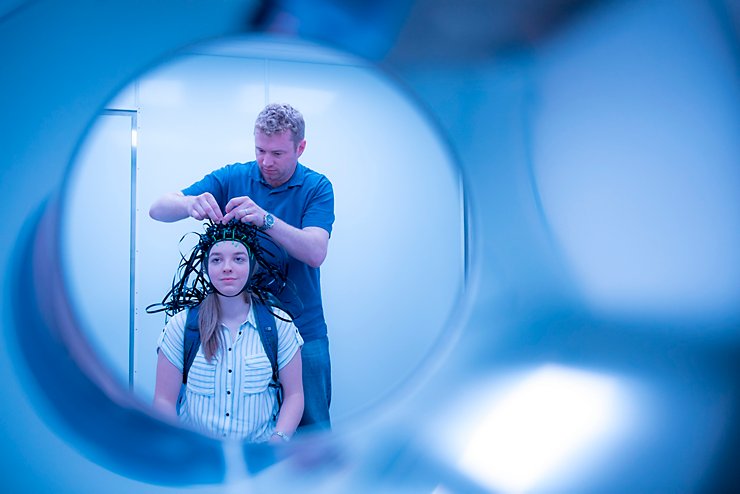
Faculty of Science
3 Years full-time
Qualification
BSc Hons
Entry requirements
A*AA
UCAS code
F350
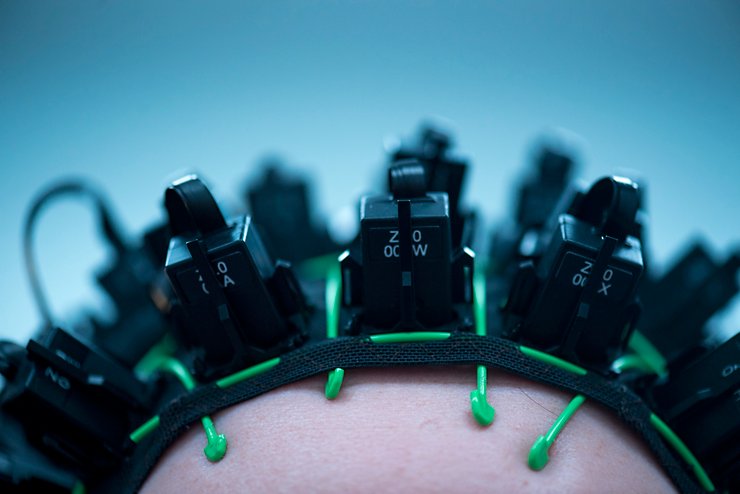
Faculty of Science
4 Years full-time
Qualification
MSci Hons
Entry requirements
A*AA
UCAS code
F371
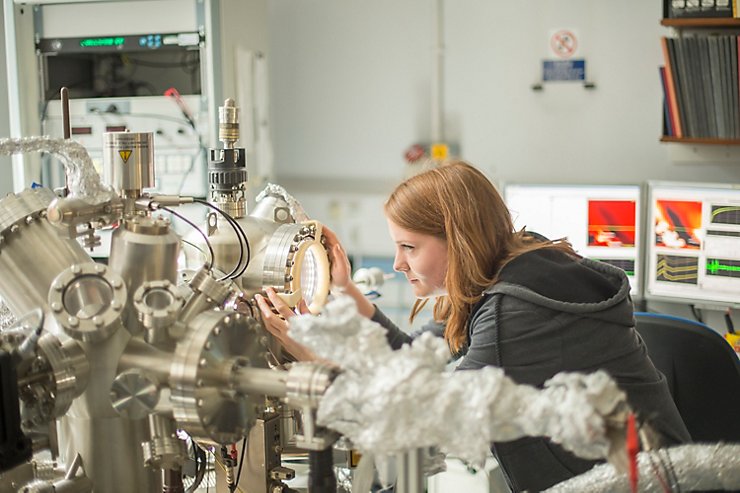
Faculty of Science
3 Years full-time
Qualification
BSc Hons
Entry requirements
A*AA
UCAS code
F300
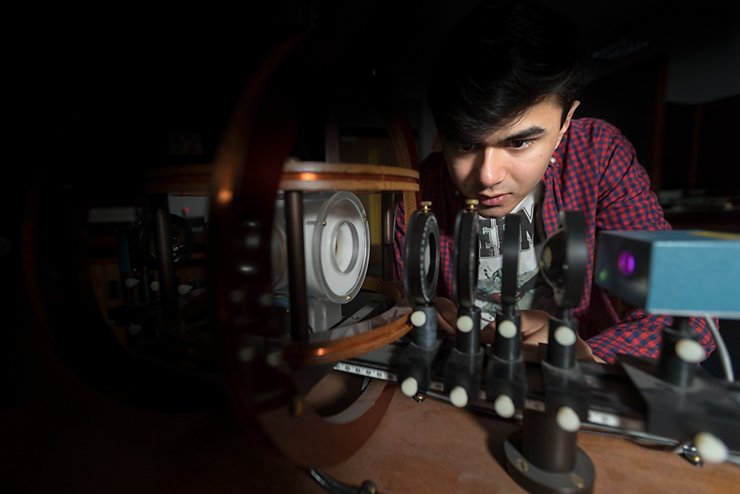
Faculty of Science
4 Years full-time
Qualification
MSci Hons
Entry requirements
A*AA
UCAS code
F303
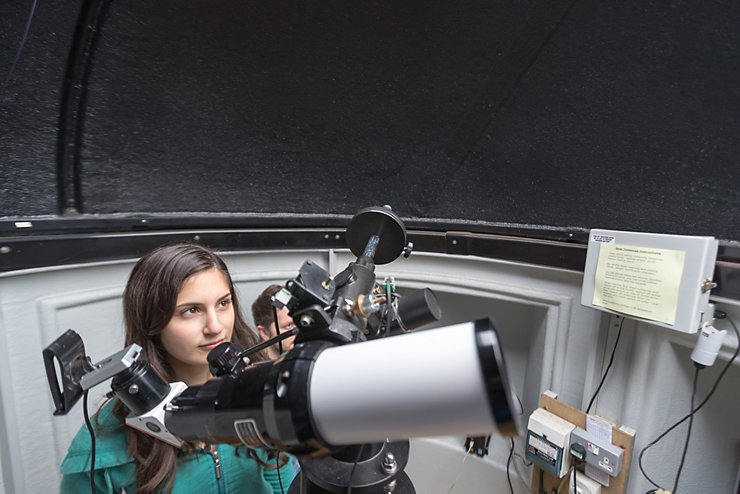
Faculty of Science
3 years full-time
Qualification
BSc Hons
Entry requirements
A*AA
UCAS code
F3F5

Faculty of Science
4 years full-time
Qualification
MSci Hons
Entry requirements
A*AA - AAA
UCAS code
F3FM

Faculty of Science
3 years full-time
Qualification
BSc Hons
Entry requirements
A*AA
UCAS code
F3R9

Faculty of Science
4 years full-time
Qualification
MSci Hons
Entry requirements
A*AA-AAA
UCAS code
F3RX
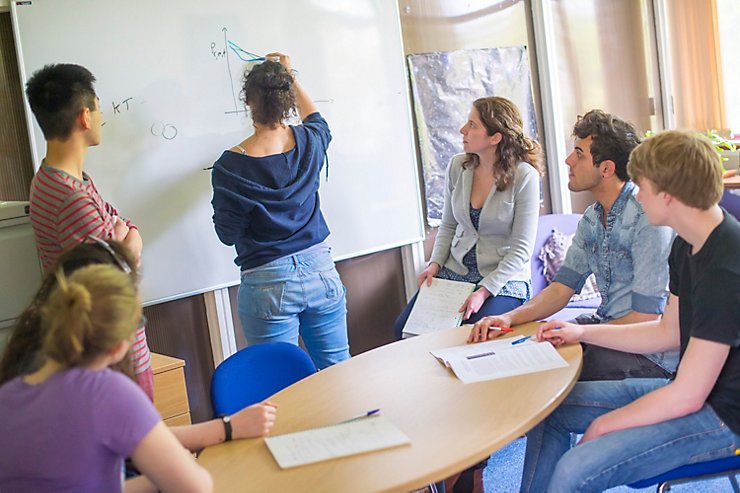
Faculty of Science
3 Years full-time
Qualification
BSc Hons
Entry requirements
A*AA
UCAS code
F346
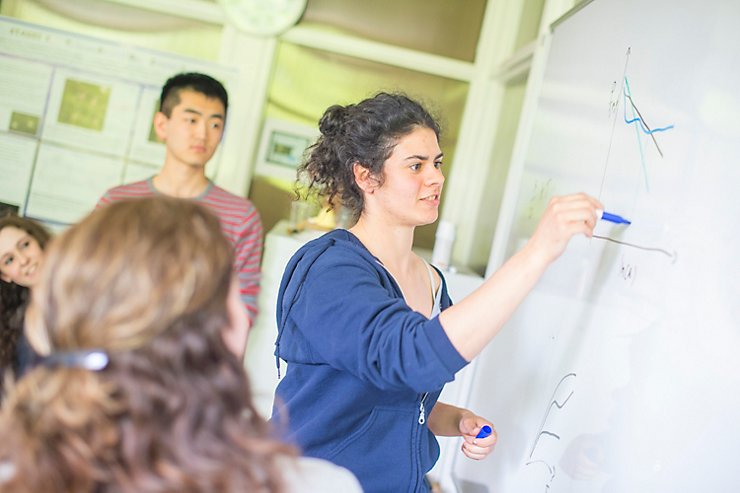
Faculty of Science
4 Years full-time
Qualification
MSci Hons
Entry requirements
A*AA
UCAS code
F345
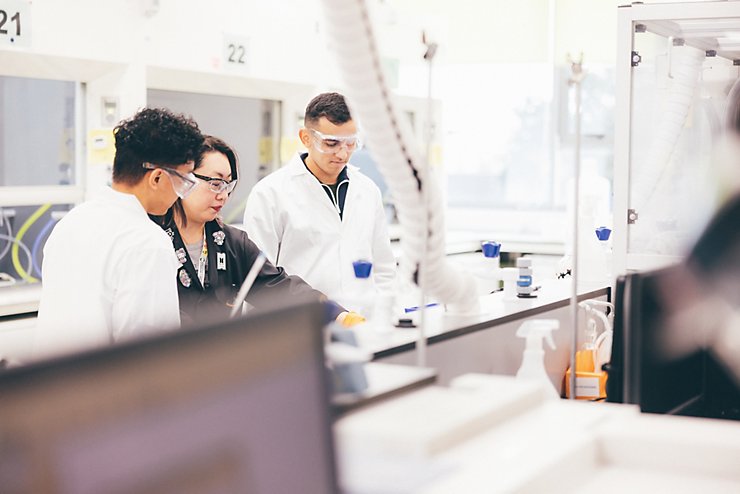
Faculty of Science
3 years full-time
Qualification
BSc Hons
Entry requirements
AAB
UCAS code
FF31
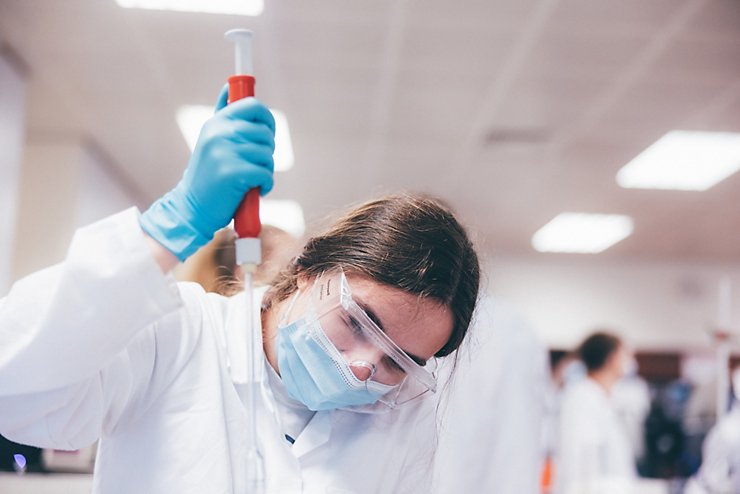
Faculty of Science
4 years full-time
Qualification
MSci Hons
Entry requirements
AAB
UCAS code
FFH1

Faculty of Science
3 Years full-time
Qualification
BSc Hons
Entry requirements
A*AA
UCAS code
F326
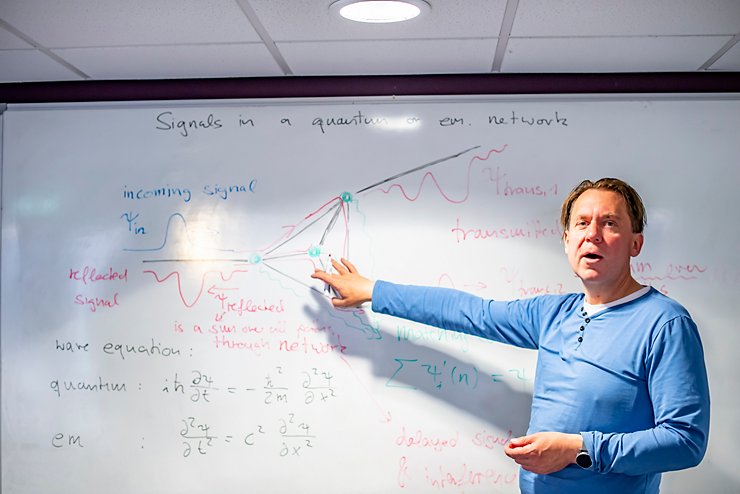
Faculty of Science
4 Years full-time
Qualification
MSci Hons
Entry requirements
A*AA
UCAS code
F325
Our webpages contain detailed information about all processes in your student journey. Check them out alongside our student enquiry centre to find the information you need. If you’re still struggling, head to our help page where you can find details of how to contact us in-person and online.
